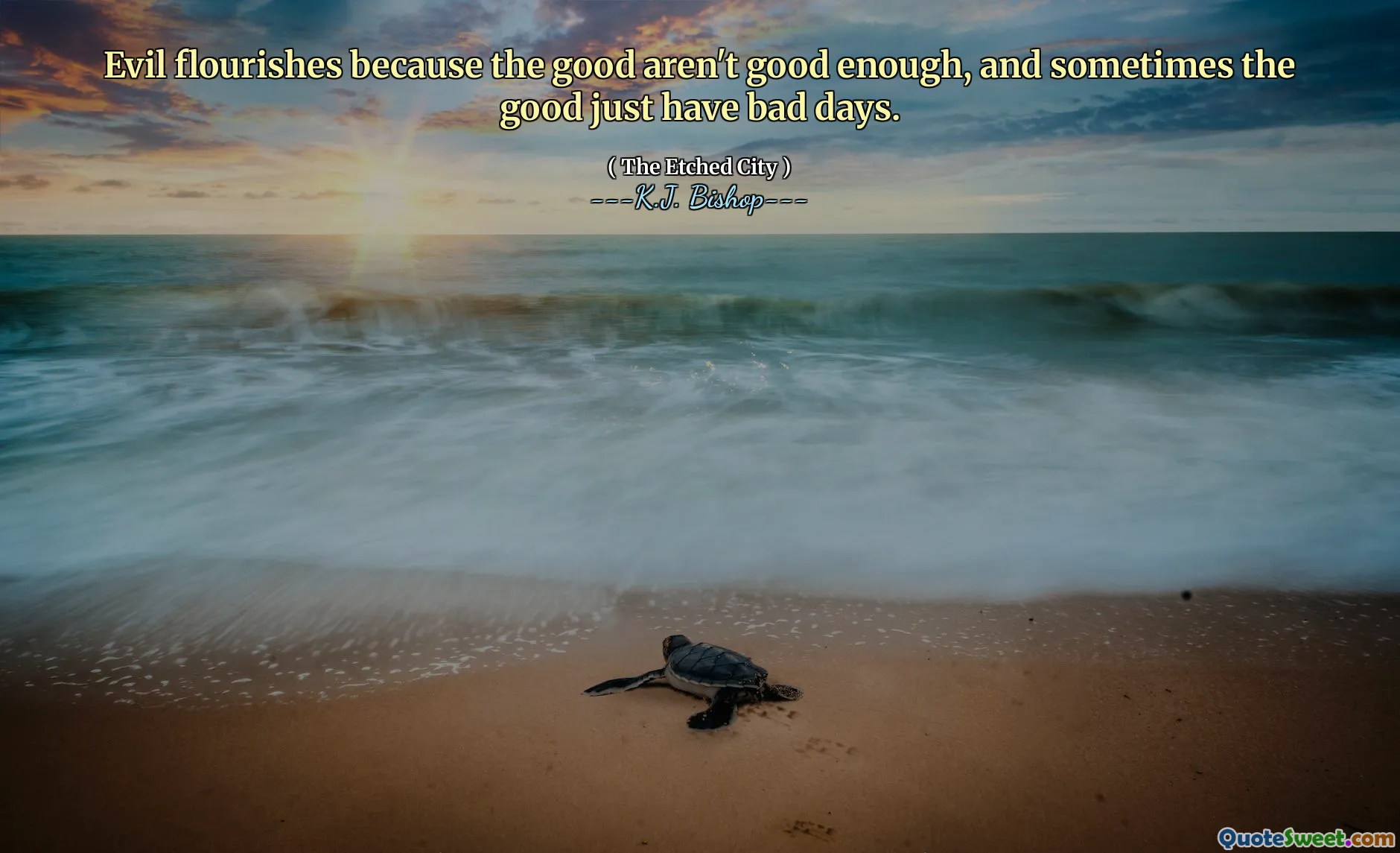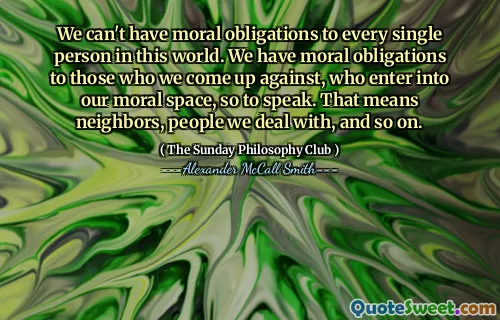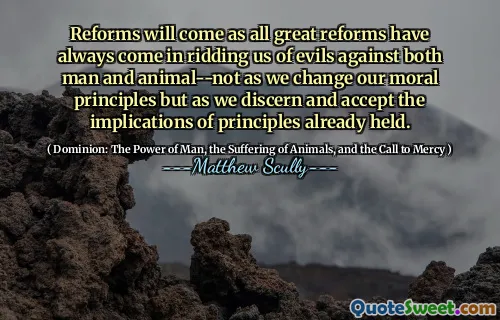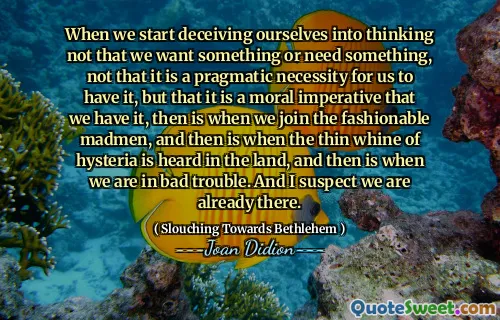
Evil flourishes because the good aren't good enough, and sometimes the good just have bad days.
This quote explores the delicate balance between good and evil, emphasizing that the persistence of malevolence often stems from the perceived inadequacy or even the temporary shortcomings of those who strive to do good. It suggests that evil does not thrive solely because it is powerful, but also because the efforts of the good are sometimes insufficient or flawed. In the context of the narrative from '(The Etched City)', such a statement underscores the complex nature of morality and action. Good people may fall short due to human weakness, fatigue, or mistakes, which can provide fertile ground for evil to take root and flourish. The acknowledgment that 'sometimes the good just have bad days' introduces a compassionate understanding of human imperfection. It reminds us that righteousness isn't always about perfection but about perseverance and humility in the face of setbacks. Recognizing that the good can falter encourages empathy and resilience rather than despair. It emphasizes that moral struggles are ongoing, often complicated by circumstances, doubts, and the fatigue that accompanies steady effort. This insight prompts reflection on how society perceives evil—not as an ever-present, unstoppable force, but as something that can exploit moments of weakness. It also subtly advocates for patience and understanding within moral and ethical struggles, as even the best efforts might sometimes fall short. Ultimately, this quote points to the importance of maintaining hope, continuing to strive for goodness despite missteps, and understanding that human imperfection does not doom moral efforts—rather, it makes the pursuit more authentic and human.




